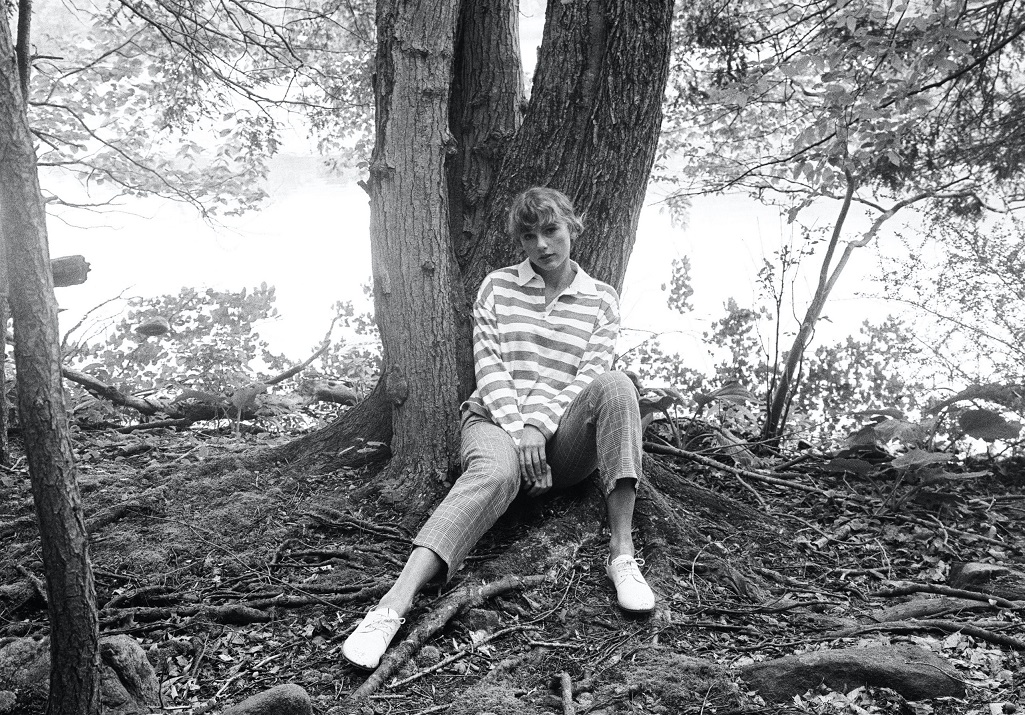The new Taylor Swift album has launched a fresh round of fan speculation about the singer-songwriter’s relationship with LGBTQ identity. But is there any validity to all of it? And honestly, should we even care?
It’s been a long quarantine, and whether we’re still holed up in our houses anxious about the possibility of our loved ones getting sick or out at drag shows in parking lots trying to enjoy ourselves while wearing masks in hundred-degree weather, the strain is showing on us all. Taylor Swift is no exception, as she made clear with the surprise release last week of Folklore, her eighth album. She put it together during isolation, working with Jack Antonoff (Fun./Bleachers) and Aaron Dessner (The National), and scoring a guest appearance from Bon Iver. And let me tell you, if you’ve spent years eagerly awaiting Taylor Swift’s full evolution into sensitive acoustic indie-folk goddess, your wait is officially over; Folklore is 100 percent what you’ve been waiting for.
But it’s also kinda set the LGBTQ internet on fire a little bit, because there are all kinds of references buried within the album that just might hint at some tiny amount of queer identity hidden deep down in T-Swift’s mind. This is hardly unprecedented — people have been speculating for years that Swift’s friendship with model Karlie Kloss was NOT strictly platonic. Plus there was the whole kerfuffle about her 2019 single “You Need To Calm Down” and whether or not its LGBTQ-celeb-packed video gave it true queer anthem status or not.
And then there’s the pro-LGBTQ social activism Swift’s engaged in over the past couple of years, from donating six-figure sums to help pass the Equality Act to the fact that she’s been using the bisexual flag colors in all sorts of contexts over the past couple of years, including a bracelet reading “PROUD” that she showed off on Instagram and her multicolored hair in the aforementioned “You Need To Calm Down” video.
If all this chatter bothers Taylor at all, she’s sure not showing it on Folklore, which has provided a ton of new reasons to create T-Swift headcanon placing her firmly within the LGBTQ community. Now, before we go on, I want to note that I don’t really know or care if Ms. Swift ever swings away from strictly hetero or not; she’s put her money where her mouth is in a big way on LGBTQ rights and other socially progressive issues, and if that only means she’s an ally, she’s the kind of ally I am 100 percent happy to have. That being said, people are having a lot of fun dissecting all the possibly-queer allusions hidden within Folklore, so who are we to abstain from diving in? Just for funsies, let’s see what’s to be found in there.

Then again, upon first listen, I’m not hearing that much. There are some references that might mean something, like the use of the term “chosen family” on “the 1,” or the line “You won’t have to cry or hide in the closet” in “Seven,” though to be honest, the latter seems more to be a song about trying to protect a childhood friend from parental abuse than anything about being gay. A lot of the other instances people are citing on the internet feel thin enough to read a book through.
However, the song “Betty” stands out from the rest of the album like a screaming red flag. To begin with, it’s a song sung by a woman, and its lyrics are about loving a woman, and their relationship not working out. It totally makes sense that this is enough to have everybody freaking out. On the other hand, we can easily bring down the freakouts by noting that, at one point, the character narrating the song reveals their name to be not Taylor but James. Therefore, based on gender/name conventions, it seems this song is Taylor singing from the point of view of a guy, at which point the entire song’s narrative instantly flips back toward heteronormativity. Boo.
But instead of looking too closely at that, let’s look at something pointed out by Vulture’s Madison Malone Kircher — Taylor Swift was named for legendary folk singer James Taylor. Knowing that and squinting a bit, you can see how the character of “James” in the song “Betty” could actually be Taylor Swift, her own self. And as soon as you make that assumption, lines like “Will you kiss me on the porch in front of all your stupid friends?” and “Slept next to her, but I dreamt of you all summer long” are back to being total screaming freakout moments.
So is “Betty” a queer love song or just Taylor Swift indulging in her literary tendency to write from characters with far different lives than her own? We’re not gonna answer this question in a GayRVA article; after all, only Taylor knows for sure, and right now she’s not telling. But regardless, we can say one thing — if pre-teen girls who are trying to figure themselves out are out there hearing and singing along with Taylor Swift’s lyrics about a failed high school relationship with a girl, maybe it’ll help them feel OK about being a girl who likes girls themselves. And isn’t that a positive thing, even if it doesn’t indicate any actual hint of same-sex attractions on Taylor Swift’s part? I sure think it is.
What’s more, while I haven’t connected with a Taylor Swift album in a few years, Folklore has me back on board in a big way; I’ve only heard it a couple of times but right now it’s the first album of hers since 1989 that I’ve instantly been into. So even if all the queer stuff is just overexcited fans on twitter reading too much into the little that’s there, Folklore is still absolutely worth everyone’s time. It’s good music; at a time of massive society-wide uncertainty, when we’re starting to lose our minds a little bit, we could all use more of that.
As for T-Swift herself, we should all appreciate her for what she is: a high-profile famous person willing to speak publicly and spend a lot of money in support of LGBTQ civil rights. Frankly, we don’t need her to be gay herself for her to be a positive presence on our side of the fight. Maybe we should all calm down a little.
Photos via Republic Records/Taylor Swift



